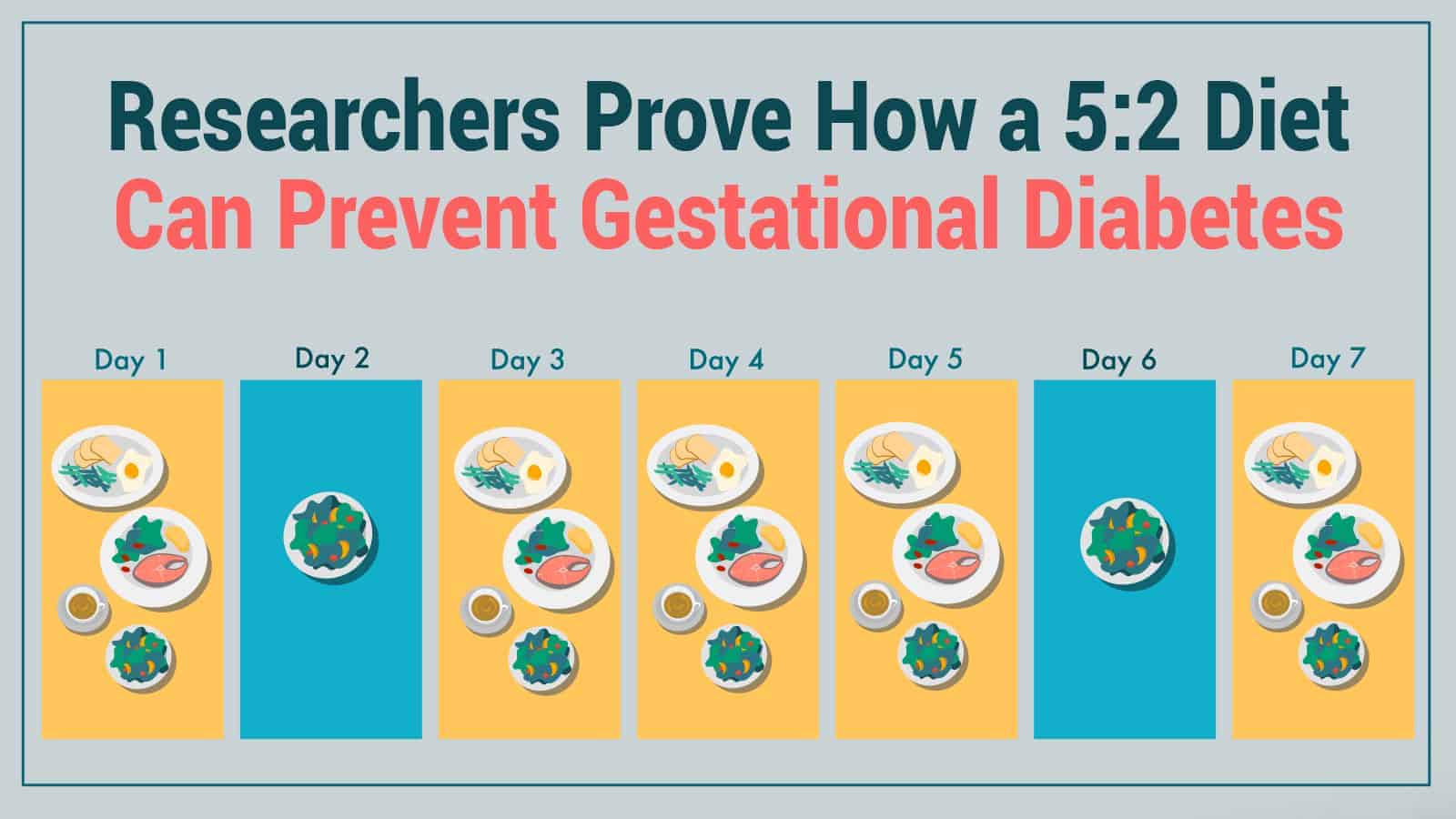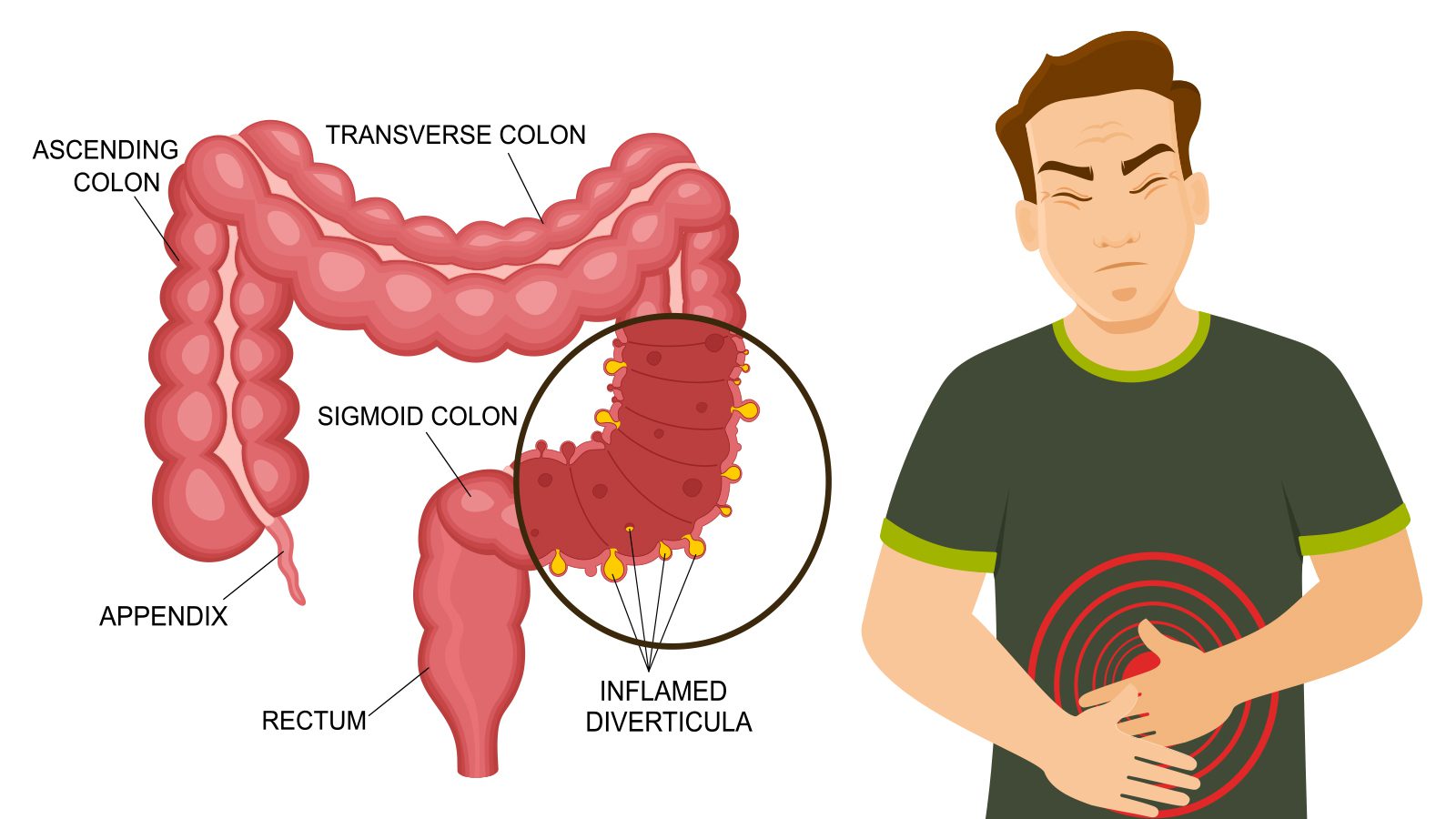New research from the University of South Australia finds that a 5:2 diet can protect from gestational diabetes. Studies also show that losing weight after the onset of gestational diabetes may prevent type 2 diabetes from developing. However, finding the proper diet to maintain weight loss for moms with a newborn can present challenges.
The new study shows that the 5:2 diet, or an intermittent fasting plan, encourages weight loss as effectively as conventional diets. This eating plan allows women more choices and flexibility when it comes to losing weight. People who follow typical restrictive diets may find it challenging to maintain and revert to old eating habits.
The 5:2 intermittent fasting diet works well since it requires only two days of significantly restricting calories during the week. People who follow this diet can eat as usual the other five days.
On the other hand, traditional diets require calorie restriction every day, explaining their high failure rate. A study published in Nature Medicine found that around 80% of people who lose significant weight will not maintain it for 12 months. In other words, they will start gaining a portion of the weight back. Another meta-analysis discovered that dieters regain over half of what they lose within two years.
What is gestational diabetes?
When you have gestational diabetes, it is crucial to shed unwanted pounds. Not only can it affect your health, but it can also prevent you from having a healthy baby. Gestational diabetes impacts around 2-10% of pregnancies in the U.S. each year. It occurs when your body doesn’t make enough insulin during gestation.
All women have some level of insulin resistance later on in their pregnancy. Some women have this condition even before getting pregnant, increasing their risk of developing gestational diabetes. It usually doesn’t present with any symptoms, so a doctor will need to run tests to diagnose it. Gestational diabetes can increase your risk of developing high blood pressure during pregnancy, however.
According to the CDC, it also may affect your baby’s health in the following ways:
- Increases the likelihood of C-section delivery
- Increases risk of having a large baby (9 pounds or heavier)
- Raises the risk of having a premature birth, which can lead to breathing trouble and other issues
- Makes it more likely the baby will have low blood sugar
- Enhances the risk of the baby developing type 2 diabetes
Most women find that their blood sugar normalizes after giving birth. However, women with gestational diabetes have ten times the risk of eventually developing type 2 diabetes. Researchers estimate half of the women with diabetes during pregnancy will develop T2D.
Being overweight and suffering from gestational diabetes enhances that risk. Type 2 diabetes can even result in chronic conditions like cancer and heart disease. That’s why it’s essential to lose weight after delivery. Luckily, the 5:2 diet shows promise for women struggling to lose weight post-labor.
Researchers Prove How a 5:2 Diet Can Prevent Gestational Diabetes
Researchers compared the effects of both the 5:2 diet and a conventional diet on weight loss for the study. They also investigated how these diets impacted diabetes risk markers in women with gestational diabetes.
The 5:2 diet involved five days of eating normally and two days of consuming 500 calories. The continuous energy-restricted diet involved eating 1500 calories per day or less. Both diets restricted calories by around 25% each week.
Lead researcher, UniSA’s Dr. Kristy Gray, says this about the research:
“Gestational diabetes is the fastest growing type of diabetes in Australia, affecting 15 per cent of pregnancies. Healthy eating and regular physical activity are recommended to manage gestational diabetes, with continuous energy restriction diets — or diets that cut calories by 25-30 per cent — being the most common strategy for weight loss and diabetes prevention.
“The trouble is, however, that new mums often put themselves last — they’re struggling with fatigue and juggling family responsibilities — so when it comes to weight loss, many find it hard to stick to a low-calorie diet.
“The 5:2 diet may provide a less overwhelming option. As it only cuts calories over two days, some women may find it easier to adopt and adhere to, as opposed to a consistently low-calorie diet requiring constant management.
“Our research shows that the 5:2 diet is just as effective at achieving weight loss as a continuous energy-restricted diet in women who have had gestational diabetes, which is great, because it provides women with greater choice and control.
“Of course, women should seek advice from a health professional before commencing this type of diet, to make sure that it is suitable for them.”
The authors say some limitations to the study included a small sample size and a significant dropout rate. Therefore, it’s difficult to say which diet offers superior results without further investigations. However, the 5:2 diet gives new moms with gestational diabetes a less restrictive option.
Weight Loss Advice for New Moms
Either way, losing weight after pregnancy will help prevent any other health problems. Another study found that women with previous gestational diabetes who lost just 5kg (11lbs) lowered their risk of diabetes by 53%. In general, you want to make sure you’re eating fewer calories than you’re burning.
Since it takes far longer to burn calories through exercise than by restricting calories, focus primarily on your diet. Eat fiber-rich foods such as dark, leafy greens, legumes, and whole grains to increase satiety. By incorporating high-quality foods into your diet, you’ll remain full for more extended periods. A brisk 30-minute walk once a day will provide adequate exercise if you’re mindful of calories.
Final thoughts on a new study that shows how a 5:2 diet prevents diabetes
A recent study by the University of South Australia found that a 5:2 diet can help reverse gestational diabetes. It can also lower a new mom’s risk of developing type 2 diabetes later on. The study didn’t find significant differences in effectiveness between this diet and conventional diets. However, restricting calories only a couple of days a week instead of every day provides more flexibility to new moms.
Hopefully, further studies will provide more evidence that moms with newborns would benefit from intermittent fasting.

















